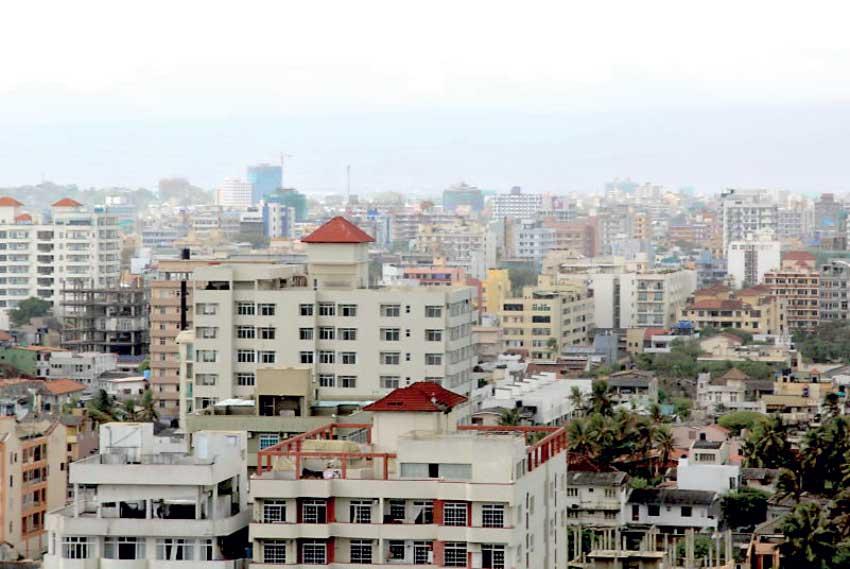Reply To:
Name - Reply Comment

With an extensive vaccination drive and easing travel restrictions, Sri Lanka’s economy has started to show signs of a positive outlook. The World Bank forecasts a 4 percent growth in GDP in 2021.
JLL’s quarterly Colombo Property Market Monitor analyses the performance of real estate in 1Q 2021 and provides a snapshot of their prospects. The report witnessed an upward trend in office, residential and retail but found the hotel and hospitality industry still struggling with the impact of COVID-19.
With relaxed lockdown measures and businesses gradually reopening, the office market showed a steady recovery trend and investor confidence. However, treading cautiously, occupiers focused on cost-savings or downsising, relocating to Grade B office spaces in and around CBD and SBD submarkets. Sectors like IT, construction, financial services and government offices kept the momentum. Leasing activity is expected to intensify in the Grade B segment.
The situation led to a high vacancy level (nearly 20 percent) in Grade A buildings. JLL expects Grade A office demand to remain subdued in the short term, given the uncertain economic environment.
In this quarter, the hotel industry, the highest contributor to the nation’s GDP, was the worst hit with an alarming drop of 98 percent. Occupancy levels dropped considerably due to falling business and MICE travel that form the bulk of demand, leading to a decline in RevPAR.
There were no new hotel openings in Colombo during this period, although the report foresees some in the second half of the year. While many projects have been shelved, supply in Colombo is expected to increase by almost 4,000 rooms over the next four years, majorly in the luxury segment.
The quarterly monitor also reviewed the impact of the government’s travel bubble scheme introduced in late 2020. The scheme significantly boosted occupancy levels with increased tourist inflow from the Eastern European blocks, such as Estonia, Latvia and Lithuania. Notably, Kazakhstan was the largest source, with 27.3 percent of the total traffic, while Ukraine accounted for 22.6 percent of the total tourism traffic.
However, the future of the tourism industry looks uncertain until the virus is contained. The demand will stay muted in 1H 2021.
The report specifically focused on the south-west coast, where hotels offering attractive rates, witnessed promising occupancy, mostly domestic. The region also holds significant potential from an investment perspective, as domestic travellers have been showing an increased interest in holiday homes outside Colombo.
The quarter saw a surge in residential sales, leading to positive sentiment in demand. Developers continued to offer attractive discounts and flexible payment plans, on the back of strategic partnerships with banks and financial institutions.
Rents are yet to recover from their fall in 2Q 2020 but remain stable across all submarkets QoQ and expected to pick up by the second or third quarter of 2021. The report anticipates a moderate price growth in the affordable segment during the year, with falling supply levels and improved demand in the coming quarters.
Following the second wave of the pandemic, people were seen slowly returning to a normal lifestyle. This led to an increase in footfall in prime malls and high streets, driving a significant recovery in retail sales in 1Q 2021. Even several office buildings in prominent high streets leased their ground and mezzanine floors to retail outlets.
The coming quarters are expected to see significant traction in retail, especially in the IT-related consumer goods market. The continued remote working, increasing adoption of online education and import concessions on IT-related goods are key drivers pushing forward the leasing demand in this sector.
Furthermore, JLL estimates rising demand for unmanned supermarkets with its growing popularity among millennial shoppers. While currently, there are only a few unmanned outlets, the trend is set to pick up the pace during 2021.
“The overall real estate activity showed signs of resilience in 1Q 2021, regardless of below-par macroeconomic conditions,” said JLL Sri Lanka Country Head Jerry Kingsley.